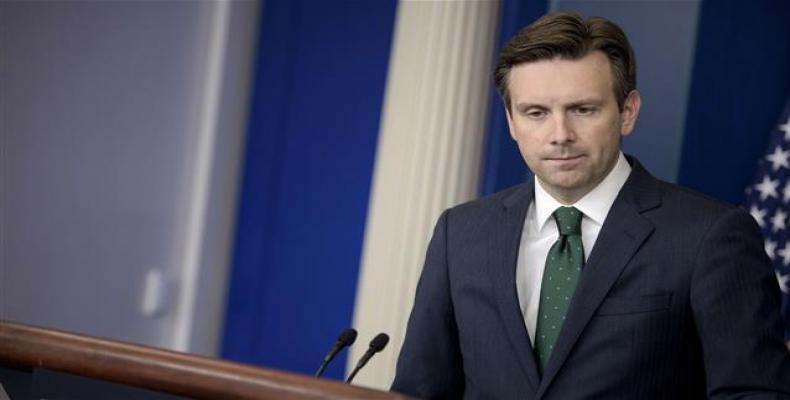Washington, January 5 (RHC)-- The U.S. government says it had previously warned Saudi Arabia about damaging consequences that would follow the execution of Shia cleric Sheikh Nimr al-Nimr.
"There have been direct concerns raised by U.S. officials to Saudi officials about the potential damaging consequences of following through on the execution, on mass executions, in particular, the execution of al-Nimr," White House spokesman Josh Earnest said on Monday.
"This is a concern that we raised with the Saudis in advance, and unfortunately, the concerns that we expressed to the Saudis have precipitated the kinds of consequences that we were concerned about," Earnest added.
The Saudi Interior Ministry announced Sunday that al-Nimr, a critic of the Riyadh regime, has been put to death along with 46 others on charges of "terrorism" and adopting a "Takfiri" ideology. Sheikh Nimr's execution has drawn strong public and political reactions from Iran and several other countries. The monarchy, however, has rejected all the criticism, accusing critics of meddling in its internal affairs.
In Iran, demonstrations were held in front of the Saudi embassy in Tehran and its consulate in the northeastern city of Mashhad by angry protesters, censuring the Al Saud family for the killing of the top cleric as part of a crackdown on Shias mostly residing in the kingdom's Eastern Province.
Following the demonstrations, Saudi Arabia announced severing of diplomatic relations with the Islamic Republic, noting that its diplomatic mission and related entities had 48 hours to leave the country.
Earnest said that Washington is concerned about the mounting tensions between Tehran and Riyadh, urging the two countries to help resolve the issue. "We do continue to be concerned about the need for both the Iranians and the Saudis to de-escalate the situation. We are urging all sides to show some restraint and to not further inflame tensions that are on quite vivid display in the region," he stated.
He said U.S. Secretary of State John Kerry and his Iranian counterpart Mohammad Javad Zarif had been in touch over the matter. Also, he noted, the U.S. diplomatic officials had had contact during which Washington's message was conveyed.
Washington Warned Saudis of Nimr's Execution in Advance


